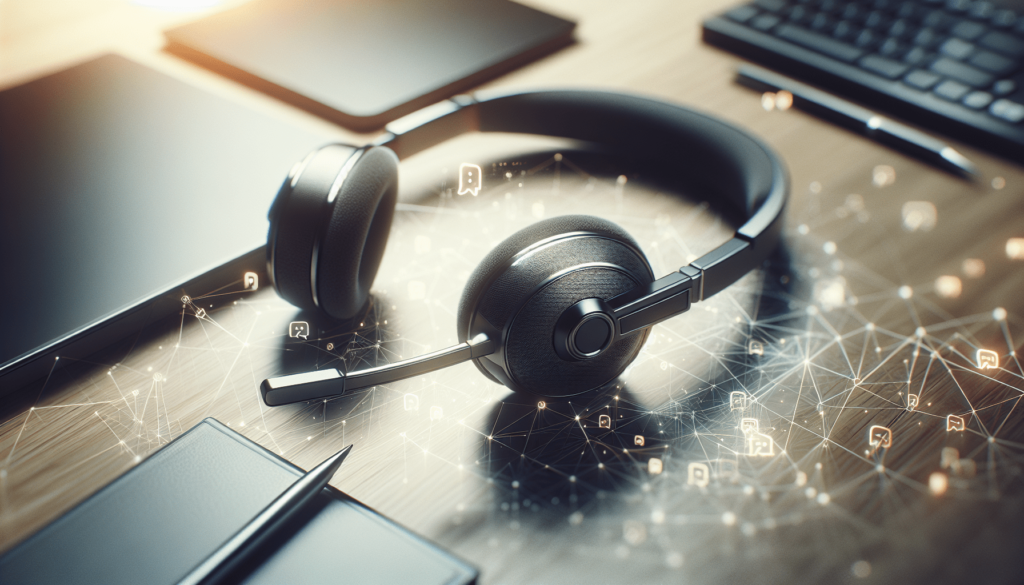What do you think makes a great live chat support agent? Is it the ability to handle difficult customers, or perhaps the skill to communicate information clearly?
Whatever your thoughts, it’s evident that live chat support agents play a vital role in customer service.
With real-time messaging becoming one of the most popular methods of communication, honing the right skills is essential.

Understanding the Role of Live Chat Support Agents
Before we jump into the essential skills and training tips for live chat support agents, let’s explore what this role entails.
Live chat agents interact with customers through chat interfaces, helping them resolve issues, answer questions, and provide a seamless experience.
Key Responsibilities
- Responding Quickly: You need to handle inquiries promptly to keep customers satisfied.
- Problem Solving: Identifying the core issue and offering effective solutions is vital.
- Maintaining Professionalism: You must always keep a polite, friendly, and professional tone.
Having a clear understanding of your responsibilities sets the stage for developing the skills necessary for success.
Top 50 Essential Skills & Training Tips
Here is a detailed breakdown of the 50 essential skills and training tips that will transform you into a fantastic live chat support agent.
1. Effective Communication
Clear communication is the cornerstone of successful interactions. Ensure that your messages are easy to understand.
- Tip: Use simple language and avoid jargon unless necessary.
2. Active Listening
Active listening is crucial. It helps you understand the customer’s needs fully before responding.
- Tip: Restate or summarize what the customer has said to show you understand.
3. Empathy
Empathy enables you to connect with the customer and demonstrate that you care about their concerns.
- Tip: Use empathetic statements like, “I understand how frustrating that can be.”
4. Time Management
You often juggle multiple chats. Prioritizing issues helps manage time effectively.
- Tip: Focus on urgent inquiries first while keeping others in mind.
5. Product Knowledge
Being knowledgeable about your company’s products or services makes you more effective.
- Tip: Regularly review product manuals and updates.
6. Quick Typing Skills
Fast typing allows you to assist customers promptly.
- Tip: Practice typing exercises to improve speed and accuracy.
7. Multi-tasking
You may have to address multiple chats and tasks at once. Efficient multi-tasking is key.
- Tip: Use keyboard shortcuts to switch between tasks quicker.
8. Problem-Solving Skills
Ability to identify and resolve problems is essential.
- Tip: Assess the issue carefully before suggesting a solution.
9. Conflict Resolution
Dealing with upset customers requires special skills in conflict resolution.
- Tip: Stay calm and avoid escalating the situation.
10. Patience
Patience during difficult interactions can lead to better outcomes.
- Tip: Take a deep breath before replying to a challenging message.
11. Technical Proficiency
Familiarity with live chat software and other tools is imperative.
- Tip: Spend time learning the software you use.
12. Attention to Detail
Small details can be crucial in customer service.
- Tip: Always double-check your messages for accuracy.
13. Adaptability
Every customer is different. Being adaptable helps you meet various needs.
- Tip: Adjust your communication style based on the customer.
14. Positive Attitude
A positive attitude can make conversations more pleasant.
- Tip: Practice positive affirmations or phrases you can use.
15. Self-Confidence
Confidence in your abilities reassures customers.
- Tip: Engage in role-plays to bolster your belief in your skills.
16. Understanding Customer Psychology
Understanding why customers behave the way they do can inform your responses.
- Tip: Read articles about customer behavior to learn more.
17. Social Skills
Engaging with customers requires good social skills.
- Tip: Practice conversations with friends to strengthen your social abilities.
18. Cultural Sensitivity
Working with a diverse customer base means understanding different cultures.
- Tip: Familiarize yourself with various cultural norms and practices.
19. Organizational Skills
Staying organized helps you manage your workload effectively.
- Tip: Use lists or software tools to keep track of tasks.
20. Continuous Learning
Always be open to learning new skills or enhancing existing ones.
- Tip: Attend workshops or webinars related to customer service.
21. Feedback Reception
Being open to feedback can help improve your performance.
- Tip: Actively seek feedback from supervisors and peers.
22. Goal Orientation
Setting goals can keep you focused and motivated.
- Tip: Break large goals into smaller, manageable tasks.
23. Stress Management
Handling stress effectively is crucial to performing well.
- Tip: Practice relaxation techniques, like deep breathing exercises.
24. Team Collaboration
Working well with your team enables better service delivery.
- Tip: Share experiences and strategies with your colleagues.
25. Crisis Management
Handling crises effectively can make a difference for your customers.
- Tip: Stay calm and escalate to management when necessary.
26. Persuasiveness
Persuasive skills can help you convince customers of value.
- Tip: Use positive language to shift customer perceptions.
27. Chat Etiquette
Acknowledge customers, use their names, and maintain professionalism.
- Tip: Familiarize yourself with standard chat etiquette rules.
28. Clear Messaging
Avoid ambiguous language that could confuse the customer.
- Tip: Review your messages before sending them.
29. Follow-Up Skills
Following up demonstrates that you care about resolving issues.
- Tip: After resolution, check in with customers to confirm satisfaction.
30. Consistency
Maintaining a consistent tone and message builds trust.
- Tip: Use templates for common inquiries while personalizing messages.
31. Data Entry Skills
Efficient data entry is essential for documenting interactions.
- Tip: Ensure accuracy in logs and reports you create.
32. Analytical Thinking
Analyzing customer data can help you make informed decisions.
- Tip: Familiarize yourself with data analysis techniques.
33. Customer Engagement Tactics
Engagement can enhance customer experience and loyalty.
- Tip: Use open-ended questions to encourage interaction.
34. Closing Skills
Knowing how to close a conversation effectively is important.
- Tip: Summarize the chat before ending it to ensure clarity.
35. Conflict Prevention
Taking steps to prevent conflicts can be beneficial.
- Tip: Anticipate potential issues in conversations and address them.
36. Understanding Legal Concerns
Knowing the legal aspects of your company’s policies can keep you informed.
- Tip: Review the legal guidelines provided during training.
37. Building Rapport
Creating rapport with customers can lead to better service.
- Tip: Find common ground through small talk.
38. Professional Development
Investing in your professional growth is essential for career advancement.
- Tip: Seek out certifications and training programs.
39. Customer Retention Strategies
Understanding how to retain customers can be a game-changer.
- Tip: Focus on resolving issues quickly to encourage loyalty.
40. Handling Difficult Conversations
Sometimes you’ll encounter tough conversations.
- Tip: Stay focused on solutions rather than dwelling on the problem.
41. Documentation Skills
Properly documenting conversations helps with future interactions.
- Tip: Take thorough notes during chats for reference.
42. Feedback Mechanism
Creating a mechanism for collecting feedback is invaluable.
- Tip: Regularly ask customers for their opinions on service quality.
43. Time Zone Awareness
Understanding time zones is crucial for international customers.
- Tip: Keep a world clock handy for reference.
44. Humor
A little humor can lighten the mood.
- Tip: Use humor carefully; ensure it’s appropriate for the situation.
45. Setting Boundaries
Setting boundaries ensures that you’re not overwhelmed.
- Tip: Learn to say no when necessary to manage your workload.
46. Brand Representation
You are a representative of your brand; how you interact matters.
- Tip: Familiarize yourself with the brand’s mission and values.
47. De-escalation Techniques
Using de-escalation techniques can calm upset customers.
- Tip: Acknowledge feelings without escalating the situation.
48. Personalization
Personalizing messages can enhance the customer experience.
- Tip: Use customer names and tailor solutions to their specific needs.
49. Assessment Skills
You should evaluate customer satisfaction after each chat.
- Tip: Send follow-up surveys to gauge their experience.
50. Building Resources
Creating a personal resource library can help you improve efficiency.
- Tip: Compile FAQs and common solutions for quick access.

Frequently Asked Questions
1. What is the primary role of a live chat support agent?
The primary role of a live chat support agent is to assist customers by answering their inquiries and resolving issues through chat platforms.
2. How important is product knowledge for a live chat support agent?
Product knowledge is very important as it allows agents to provide accurate information and effective solutions to customer problems.
3. What skills are most critical for success in this role?
Effective communication, problem-solving, and empathy are among the most critical skills for live chat support agents.
4. How can I improve my typing speed for chat support?
You can improve typing speed by practicing with online typing tools and exercises designed for speed and accuracy.
5. Why is empathy important in customer service?
Empathy helps you connect with customers, making them feel understood and valued, leading to better customer satisfaction.
6. What are some effective ways to manage stress as a live chat support agent?
Practicing relaxation techniques, taking breaks, and engaging in physical activity can be effective stress management strategies.
7. How do I handle a difficult customer?
Stay calm, listen actively, and offer solutions while empathizing with their concerns to de-escalate the situation.
8. What is the significance of follow-up in customer service?
Follow-ups are significant as they show customers you care about their experience and help reinforce their satisfaction.
9. How can I continuously improve my skills as a live chat support agent?
Participating in training sessions, attending workshops, and seeking feedback are excellent ways to continuously improve your skills.
10. What tools can help live chat support agents be more efficient?
Various chat software, automated response systems, and customer relationship management (CRM) tools can increase efficiency.
Enhancing your skills and training as a live chat support agent is beneficial not only for your personal development but also for delivering exceptional customer service.
Remember to regularly apply these skills and tips, keeping your customers’ needs at the forefront of your interactions.
By doing so, you’ll not only improve your effectiveness but also contribute significantly to your team’s overall success.
Are you looking for a live chat assistant job you can do online from home? Explore live chat assistant job opportunities worldwide and start your remote career today!

